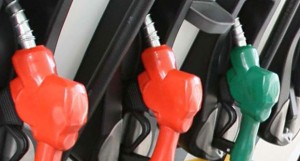Other prices watched after fuel hikes

Local oil price increases breached the P1 level this week as concerns over global crude supplies haunted the markets. INQUIRER FILE PHOTO
MANILA, Philippines–Local oil price increases breached the P1 level this week as concerns over global crude supplies haunted the markets.
This was the highest adjustment yet in oil prices this year but its impact on overall price levels would depend on whether it would result in transport fare and food price increases, economists said.
Petron, Shell and Seaoil imposed increases of P1.30 per liter for gasoline, P1.20 per liter for diesel and P1.45 per liter for kerosene at 6 a.m. on Tuesday. Phoenix Petroleum, Total and PTT Philippines imposed similar adjustments, also from 6 a.m. Tuesday, but only for gasoline and diesel.
The adjustments reflect the continued increase in the prices of refined petroleum products in the international market, the companies said.
Other oil firms have not formally announced increases but are expected to follow suit since most of the country’s fuel sources are imported and are similarly vulnerable to price shocks.
Article continues after this advertisementThe last time fuel price increases reached the P1 level was on Feb. 18, when oil companies imposed a P1 per liter increase for gasoline. On the same date, diesel prices increased by 50 centavos per liter and by 25 centavos per liter for kerosene.
Article continues after this advertisementIncluding the price movements this week, the year-to-date total adjustments stand at a net decrease of 95 centavos per liter for diesel and a net increase of P1.30 per liter for gasoline.
This week’s round of price increases is the second in as many weeks because of supply concerns sparked by sectarian violence in Iraq. Last week, the oil firms raised gasoline prices by 20 centavos per liter, diesel by 30 centavos per liter, and kerosene by 55 centavos per liter.
While oil prices alone, which change weekly, will not significantly drive inflation, its impact on the more permanent transport cost could, said former Budget Secretary Benjamin E. Diokno in a text message.
Several groups of jeepney drivers and owners this week called for a P1.50 increase in the basic fare.
According to economist Cid L. Terosa of the University of Asia and the Pacific, “steep oil price hikes will drive prices in the coming months through their upward pressure on transportation costs, distribution expenses and trade margins. Coupled with high food prices, steep oil price hikes will cause the inflation target to be breached.”